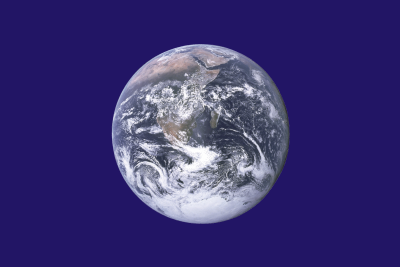For the past 46 years, people have assembled annually to draw attention to issues relating to pollution, abuses of natural resources, and damage to our environment; this day in  April has become known as Earth Day. While a broad-based, fairly organized campaign, such as this one, will be full of various opinions on causes, approach, and even political rhetoric, I suggest that diversity of beliefs should not inhibit one from standing for what is right, and that Christians should be at the front of the line when it comes to issues that really matter.
April has become known as Earth Day. While a broad-based, fairly organized campaign, such as this one, will be full of various opinions on causes, approach, and even political rhetoric, I suggest that diversity of beliefs should not inhibit one from standing for what is right, and that Christians should be at the front of the line when it comes to issues that really matter.
The Bible says: “the earth is the Lord’s, and all of its fullness, the world and those who dwell therein.” (Psalm 24:1, I Cor 10:26&28) We do not own the earth, God does, the One who created it! And we do not own ourselves. We too are accountable to our Maker and Judge. But God has placed mankind on this planet with a charge to care for the earth, as stewards who will give an account of our choices and trustworthiness in this responsibility. Although Adam faltered and everything was affected, Jesus came and died to restore what was lost. And the Scriptures predict the ultimate restoring of all things, and describes a wholly new heaven and earth.
One day when Nehemiah was praying and reflecting upon the sovereignty of his God, he cried “You alone are the Lord, You have made heaven, the heaven of heavens, with all of their host, the earth and everything on it, the seas and all that is in them, and You preserve them all. The host of heaven worships You.” (Neh 9:6) Here, God’s servant deals with real “sustainability”, a buzzword in the environmentalist movement – the acknowledgement that God holds all the particles and pieces together.
I want to recognize the consternation that some Christians feel concerning the movement; that there are those who would rather save dolphins than humans. That our culture bends backwards to fund opportunities to terminate unborn human lives, but would outrage if we captured pregnant females and extinguished their calves. That we would spend millions rebuilding steelhead salmon runs while we let hungry children die of starvation, or suffer disease for lack of a $3 vaccination, in various parts of the world. And the, sometimes, unreasonable attention to “mother earth” instead of “Heavenly Father God” is reminiscent of the warnings of Scripture “who exchanged the truth of God for the lie, and worshiped and served the creature rather than the Creator, who is blessed forever. Amen.” (Romans 1:25) But these various concerns about unbalanced, or even unethical, approaches to environmentalism shouldn’t be a reason why Christians might fail to stand for the things that God has given mankind charge over.
It’s true that this existence is temporary, and eventually the entire thing that we currently know will come to a close with great calamity, according to the Book of Revelation. But that doesn’t relieve us of our duty to “occupy until He comes.” Stewardship of God’s Word includes our responsibilities to our planet. Out of the 941 times that the earth is mentioned in the Bible, many of the passages deal with this concept. Jesus quoted from Isaiah when He said that “Heaven is God’s throne and the earth is His footstool.” We do not take care of the earth because we are trying to make it our heaven, instead, we steward the planet faithfully out of a heart to honor its Creator.
Regardless of where you fall on the debate concerning Global Warming, fossil fuels, and some of the other conversations surrounding this, I hope you are able to do something that lessens your carbon footprint, while deepening your spiritual imprint in this community. “He loves righteousness and justice; the earth is full of the goodness of the Lord.” (Psalm 33:5) Happy Earth Day!
